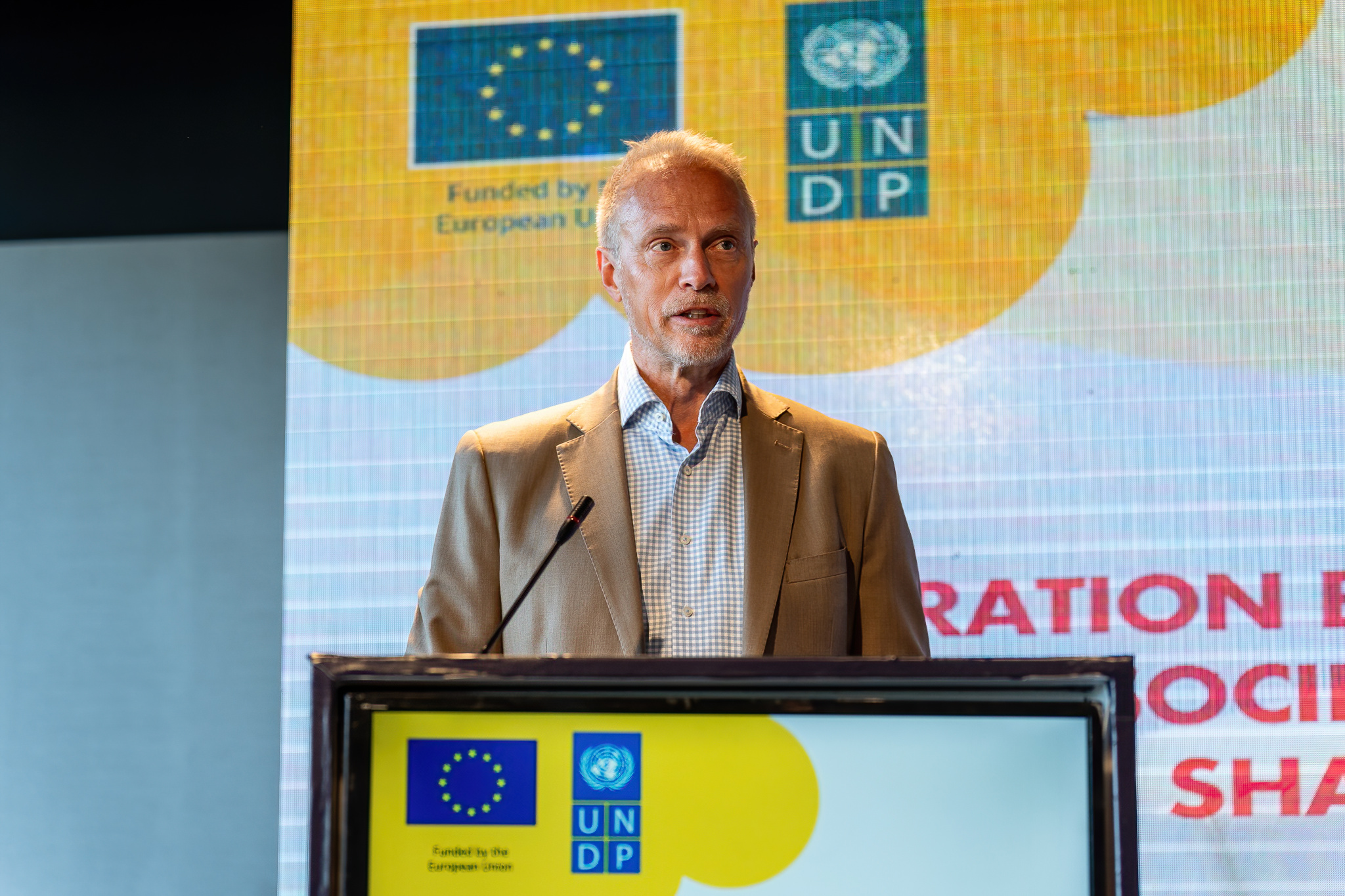Strengthening cooperation between local authorities and NGOs through the ReLOaD2: Relevant steps to European integration
October 1, 2024

The final ReLOaD2 Regional conference in Podgorica, dedicated to strengthening cooperation between local authorities and civil society, gathered more than one hundred representatives of ministries, local governments, and civil society organizations (CSOs) from the Western Balkans, as well as representatives of the European Union.
Opening the conference, Minister of Public Administration of Montenegro, Marash Dukaj stated that the capacity of non-governmental organizations must be utilized because only this way we can become a society that belongs to the European Union.

“Their expertise can significantly help local authorities develop appropriate local policies to the satisfaction of citizens and this refers to the whole region as well. I am especially pleased with initiatives such as the ReLOaD2 programme. Therefore, this is an opportunity to thank the European Union for encouraging good practices with concrete actions, but also to local governments for their active participation in this project.”Marash Dukaj, Minister of Public Administration
Yngve Engstrom, Head of the Cooperation Sector in the Delegation of the European Union to Montenegro, added that this is a long-term process.

“Transparent criteria for the use of public funds strengthen partnerships at the local level and improve the quality of necessary reforms for the EU accession process and ReLOaD2 has made impressive achievements in this regard.”Yngve Engstrom, Head of the Cooperation Sector in the Delegation of the EU to Montenegro
The ReLOaD2 programme, financed by the European Union with 12.63 million euros and implemented by the United Nations Development Programme (UNDP), includes 62 local governments across the Western Balkans. Over the past four years, more than 470 NGO projects have been implemented, benefiting over 70,000 citizens in the region. Activities are carried out in various sectors identified by local authorities as important priorities, bringing the region closer to meeting transparency conditions for EU accession.
One of projects was implemented by NGO ORO from Danilovgrad and Union of the Blind Persons from Podgorica, who demonstrated part of their project with short choreography for the conference participants.
Marko Savićević from the NGO ORO says they chose to partner to ensure the proactive participation of children and young people with disabilities, while also enriching the cultural life of the central region with unique performances of traditional songs.
“Thanks to ReLOaD2, we not only gained new educators, folklore performers, and high-quality music production, but also learned how to write complex projects and implement them properly. I am extremely excited about the new phase of ReLOaD programme, and similar initiatives in the community."Marko Savićević, NGO ORO
Enrica Chiozza, Head of Sector at Neighbourhood and Enlargement negotiations (DG NEAR), European Commission, stated that cooperation between municipalities and local organizations forms the foundation for sustainable growth and development across the Western Balkans.

“It is essential to harness the momentum for enlargement ensuring that the democratisation process is inclusive and truly representative. By encouraging local level initiatives like Reload CSO and local governments can create a more dynamic and responsive system that fosters genuine progress across the region.”Enrica Chiozza, Head of Sector at Neighbourhood and Enlargement negotiations (DG NEAR), European Commission
A strong focus on youth involvement was also a central theme of the Final ReLOaD2 Regional Conference. Recognizing the crucial role of young people in shaping the future of the Western Balkans, the ReLOaD2 programme has implemented a series of activities aimed at empowering youth and making smaller communities more attractive places to live. These initiatives included training programs, internships, grants for youth-led actions, and support for entrepreneurial ideas. The program’s efforts to engage youth have created significant opportunities for their involvement in local governance and community-building, contributing to the overall development of the region.
UNDP Resident Representative in Montenegro, Ekaterina Paniklova, highlighted the importance of empowered and informed young people for strong local communities.

“I will remind you of the concerning results that more than half of the youth in the Western Balkans see themselves abroad in the next ten years. In this regard, through this program, a series of activities with young people have been designed to make smaller communities more desirable places to trainings, internship programs, grants for actions, and business ideas. ReLOaD2 has created many good practices and examples of youth involvement, which we hope to transfer to the next phase of the program.”Ekaterina Paniklova, UNDP Resident Representative in Montenegro
The conference summarized these successes and provided thematic discussions aimed at recommendations for improving accountability and efficiency at the local and regional levels, with an emphasis on continuing with enhancing communication and knowledge exchange. The main recommendations reiterated the need for continuation of support to the Western Balkans countries and territories in improving government transparency and collaboration with civil society as relevant requests for EU accession process.

 Locations
Locations








